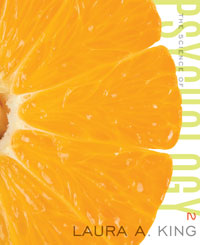1 A) intrinsically; extrinsically B) extrinsically; intrinsically C) intrinsically; not being D) not being; extrinsically 2 A) esteem B) cognitive C) aesthetic D) self-actualization 3 A) self-determination theory. B) the deficiency needs in Maslow's hierarchy. C) set point theory. D) expectancy x value theory. 4 A) glucose. B) cholecystokinin (CCK). C) leptin. D) insulin. 5 A) anorexia. B) bulimia. C) obesity. D) binge-eating disorder. 6 A) two-factor theory of emotion. B) upward comparison. C) facial feedback hypothesis. D) Cannon-Bard theory. 7 A) Edward will be happier and perform better because he has high intrinsic motivation. B) Lisa will be happier and perform better because she has high intrinsic motivation. C) Edward will be happier and perform better because he has high extrinsic motivation. D) Lisa will be happier and perform better because she has high extrinsic motivation. 8 A) the stimulus of the roller coaster has caused her to feel fear and anticipation; those feelings, in turn create a physiological response. B) the stimulus of the roller coaster has caused her to simultaneously feel fear and anticipation and have a physiological response. C) the stimulus of the roller coaster has caused her to think about the dangers of roller coasters; her thoughts, in turn, have caused an emotional and physiological response. D) the stimulus of the roller coaster has caused a physiological change; she has interpreted this change as the emotions of fear and anticipation. 9 A) the first class B) the second class C) the third class D) it depends on which subject he likes most 10 A) sympathetic nervous system. B) parasympathetic nervous system. C) central nervous system. D) glucose levels.





